Related Research Articles
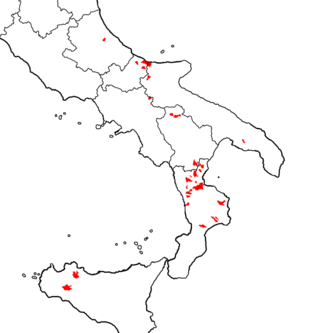
The Arbëreshë, also known as Albanians of Italy or Italo-Albanians, are an Albanian ethnolinguistic group minority historically settled in Southern and Insular Italy.
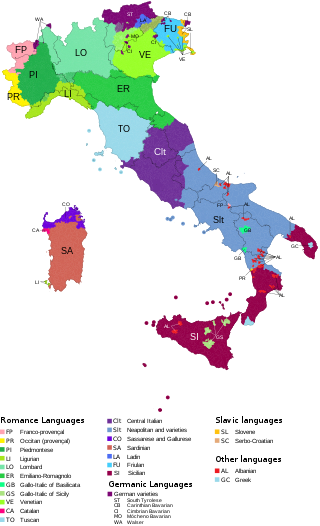
The languages of Italy include Italian, which serves as the country's national language, in its standard and regional forms, as well as numerous local and regional languages, most of which, like Italian, belong to the broader Romance group. The majority of languages often labeled as regional are distributed in a continuum across the regions' administrative boundaries, with speakers from one locale within a single region being typically aware of the features distinguishing their own variety from one of the other places nearby.

Giuseppe Schirò was an Arbëresh neo-classical poet, linguist, publicist and folklorist from Sicily. His literary work marked the transition from the Arbëresh language to modern Albanian literature in Italy. He was a major protagonist of the Rilindja, the Albanian cultural awakening or Albanian Renaissance, in Italy.
The primary languages of Calabria are the Italian language as well as regional varieties of Extreme Southern Italian and Neapolitan languages, all collectively known as Calabrian. In addition, there are speakers of the Arbëresh variety of Albanian, as well as Calabrian Greek speakers and pockets of Occitan.

Francavilla in Sinni is a town and comune in the province of Potenza, Basilicata, in southern Italy.
Piana degli Albanesi is a comune with 6,128 inhabitants in the Metropolitan City of Palermo, Sicily. The official name of the town was Piana dei Greci until 1941. The municipality is situated on a mountainous plateau and encircled by high mountains, on the eastern side of the imposing Mount Pizzuta, the city, which is mirrored on a large lake, is 24 km from the metropolitan capital. The town is the most important center of the Arbëresh community of Sicily, as well as the largest and most populous colony of Arbëreshë and it is the episcopal see of the Eparchy of Piana degli Albanesi, constituency of the Italo-Albanian Church whose jurisdiction covers all Albanians of Sicily who practice the Byzantine rite.
Arbëresh is the variety of Albanian spoken by the Arbëreshë people of Italy. It is derived from the Albanian Tosk spoken in Albania, in Epirus. A related language is spoken by the Arvanites, with endonym Arvanitika.
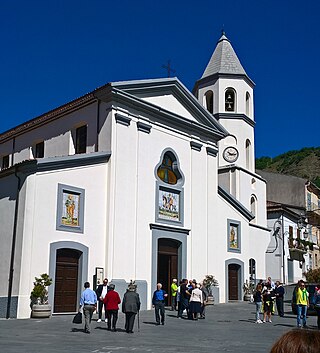
San Costantino Albanese is an Arbëreshë town and comune in the province of Potenza, in the Southern Italian region of Basilicata.
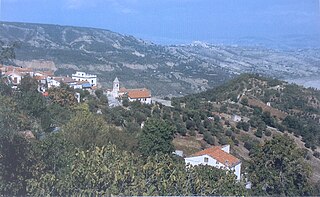
San Paolo Albanese is an Arbëreshë village and comune of 328 people in the province of Potenza, in the Basilicata region of southern Italy.

Castrovillari is a town and comune in the province of Cosenza in the Calabria region of southern Italy.
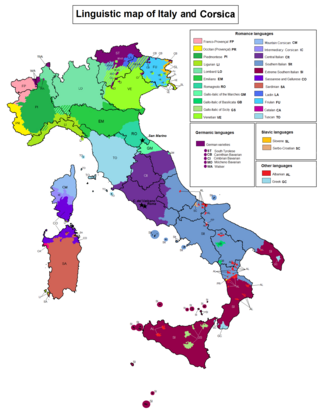
Gallo-Italic of Sicily, also known as the Siculo-Lombard dialects, is a group of Gallo-Italic languages found in about 15 isolated communities of central eastern Sicily. Forming a language island in the otherwise Sicilian language area, it dates back to migrations from northern Italy during the reign of Norman Roger I of Sicily and his successors.
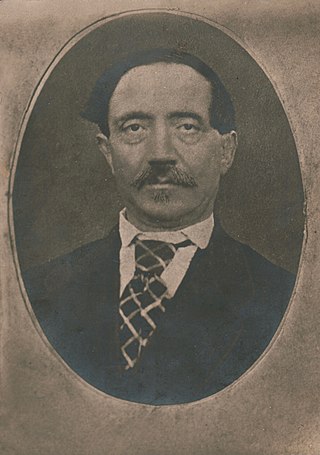
Girolamo de Rada was an Arbëreshë folklorist, journalist, lawyer, playwright, poet, rilindas and writer. He is regarded as one of the most influential Albanian writers of the 19th century who played an essential role in the Albanian Renaissance.
Giuseppe Schirò Di Maggio, born in 1944, is an Arbëreshë poet and dramatist of Piana degli Albanesi in Sicily.

The Italo-Albanian Catholic Church or Italo-Albanian Byzantine-Catholic Church is one of the 23 Eastern Catholic Churches which, together with the Latin Church, compose the Catholic Church. It is an autonomous (sui juris) particular church in full communion with the Pope of Rome, directly subject to the Roman Dicastery for the Oriental Churches, but which follows the Byzantine Rite, the ritual and spiritual traditions that are common in most of the Eastern Orthodox Church. It uses two liturgical languages: Koine Greek, the traditional language of the Eastern Churches, and Albanian, the native language of most of its adherents.
Marco La Piana (1883–1958) was an Italian scholar of Arbëresh origin. La Piana gave his contribute through his studies on Albanian language and Arbëresh dialects.
Giuseppe Schirò Junior, was an Italian scholar and literary historian.
Maria Antonia Braile was an Italian-arbëreshë writer and the first Albanian woman writer to ever publish literature in Albanian.
Francesco Altimari is an Italian scholar in the field of Albanology. He is honorary member of the Academy of Sciences of Albania (2006), external member of the Academy of Sciences and Arts of Kosovo (2008) and full professor (1991) of the Albanology section of the University of Calabria.

Kristina Gentile Mandala (1856–1919) was an Arbëresh writer from Italy. An early documenter of Arbëreshë fairy tales, she is considered one of the first Albanian women writers.
References
- 1 2 3 AUTORI E STUDIOSI LOCALI [Local authors and researchers] (in Italian), University of Calabria